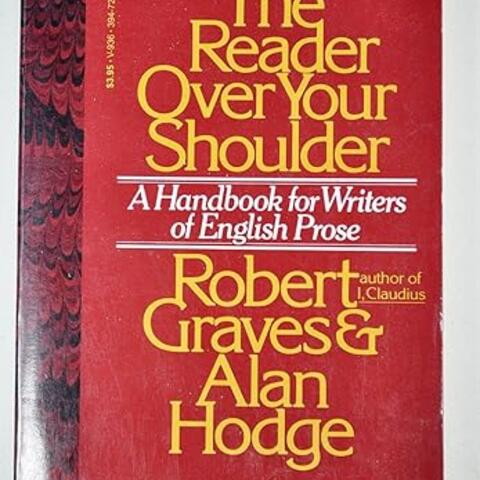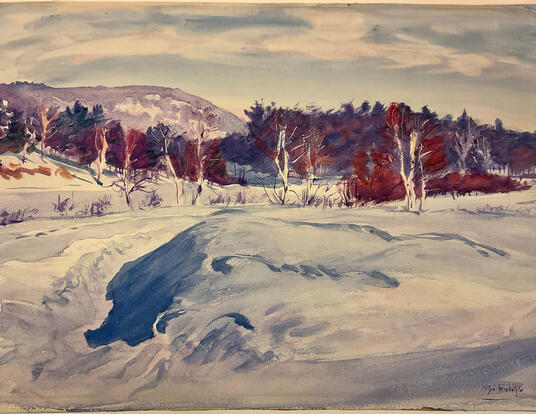Musings on Originality
Notes from a Writer's Desk

In a collection of essays on poetry, aptly called American Originality, Louise Glück proposes, dare we say, an original understanding of the titular concept. As a society, we praise art as “original” when it breaks from the past in a triumphant and defiant moment of self-creation. Yet in Glück’s eyes, what we deem original has paradoxical qualities, for it “does not so much reject tradition as project it into the future,” creating a coherence for what comes after by serving as a “model or template” that can produce “repeatable effects.” The truly unique, on the other hand, will fade into obscurity because of its very individuality, because of its inimitable qualities.
The self-creation myth of the writer is nothing new. It has been described, among other ways, through the analogy of the silkworm, which spins its own threads from within. Yet the classic apian metaphor has always been more fitting; great writers are great readers before anything else, gathering from various sources and learning how to imitate as a first step to cultivating their own voices. In a general sense, and certainly in academia, the dialogue between past and present and between writers from different generations is central to innovation, while connecting us all to something greater than ourselves. However, in creative contexts, the endeavor to imprint the self above all else reflects a deep-seated concern for posterity, which is only accentuated in a culture of the individual that has raised the genius figure to a godlike status. In Glück’s American myth, the self is the progenitor of the “original” creation who lives on in the echo of repeatable effects. When an artist “looks like a renegade” but merely produces an aesthetic commodity which can be replicated, aesthetic admiration becomes, to borrow Franco Moretti’s words from Far Country, a “retrograde personality cult” more than a “genuine intellectual experience.”
The question of what constitutes originality applies as much to academic as to creative writing. In American academe, we are encouraged—indeed required—to produce original scholarship, engaging in intellectual dialogues that often transcend our own space and time. We do not ignore but acknowledge the collectivity of such pursuits, even when charting a new path. A novel contribution to scholarship can take many forms, whether it’s in the questions asked, the arguments advanced, the methods used, the materials unearthed, the findings reached, or some combination thereof. In staking a claim for originality or novelty, we find ourselves in a bind, for we need to make clear our contributions without alienating our audience, and so we embed our boldness within a template. Such reliance on a model or template that is replicable can stifle intellectual freedom. But in a “publish or perish” environment, there exists the real fear that going outside of the conventions of a field or a journal will sink our chances of publishing, will tank our careers.
As a result, style becomes identical with content, not only keeping us all in our lanes, but rendering the process of writing mechanical and the product, quite often, rather dull. Stylistic sterility or conformity is meant to imbue the piece with an air of both objectivity and authority, as though adherence to arbitrary standards equates to knowledge. In practice, it works. Yet this conformity leads to the opposite extreme: not an empty aesthetic experience and individual personality cult, but rather, the lack of any aesthetic experience and any individual. Unlike in creative acts, the self gets entirely subsumed, or consumed, within the academese. In either case, whether the writing (or art in general) strives to advance a personality cult or eliminate all personality, the nuance, the beauty, within the content is wiped clean from, or becomes secondary to, the surface appearance—of conformity or nonconformity. From an academic perspective, how might we encourage an appreciation of style, of writing, that is not identical to content but that compliments it, accentuates it?
In the aforementioned Far Country, Moretti suggests that in teaching literature, we must foster a reading built on both wonder and critique. I believe that we can approach both academic reading and writing in this way. Reading with wonder, we maintain an openness, allowing the writing to surprise us, move us, challenge us. Writing with wonder, to me, means something similar: that is, writing with freedom, with an openness to the words that may emerge, and not in a game of write by number, filling in the blanks of a rigid, predetermined syntax. To put it a different way, we should write with voice, with our voice, which may only become manifest in the process itself. On the other hand, as readers, we should not be so awed by something impressive that we fall into a hollow aesthetic admiration. We must carefully examine the content within through close reading and consideration. Likewise, as writers, we may be content to let ourselves get carried away in initial, freeform drafting. But in rendering those thoughts into a clear story, we need to curb overwrought style and ensure that the content is sound, that it advances an argument based on evidence, that the structure is cohesive and the message coherent.
This is where things get tricky, for the best writing is both complex and clear. We might be tempted to view especially challenging and obfuscatory rhetoric as brilliant, as original. And yet, there is a fine line between profundity and confusion. In another essay of American Originality, Glück, as a poet of insight, intimacy, and technical beauty, makes a shrewd observation about the art of poetry: if the grammar is too clear, then the reader may believe that the poem lacks intellectual depth, even if there are profound philosophical musings therein. In academic writing, conversely, unclear grammar impedes intellectual engagement, muddles the message. What good is the communication of new research that is meant to contribute to knowledge if readers cannot follow it? It is clarity that underscores arguments, that makes them, to borrow Moretti’s words once more, “free from fear, and all forms of hypocrisy.”
The process of finding the right words can be a long one. But that time is an advantage, for as readers of ourselves, we can revisit our own writing with the same sense of wonder and critique and shape it into something better, something more resonant both in substance and sound. Something that is original, directing itself toward both the past and the future not to elevate the self as the founder of a new model, but as a valuable new voice in an ongoing intellectual endeavor. As a voice with something to say, and with the boldness and the humility to say it.
Ready to book an appointment with FWC staff? Access the FWC intake form.
Get the Latest Updates
Join Our Newsletter
Subscribe to Colloquy Podcast
Simplecast




